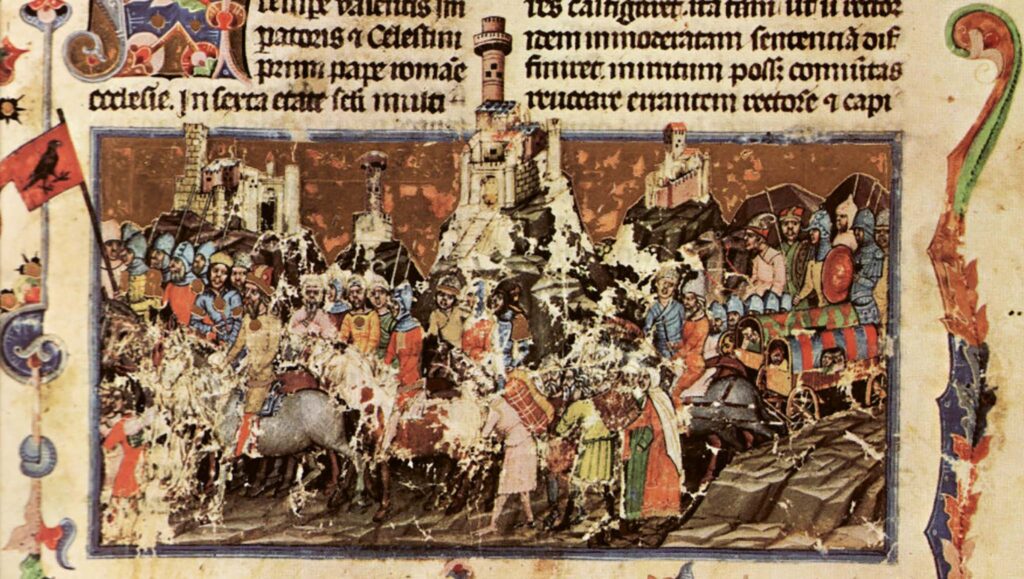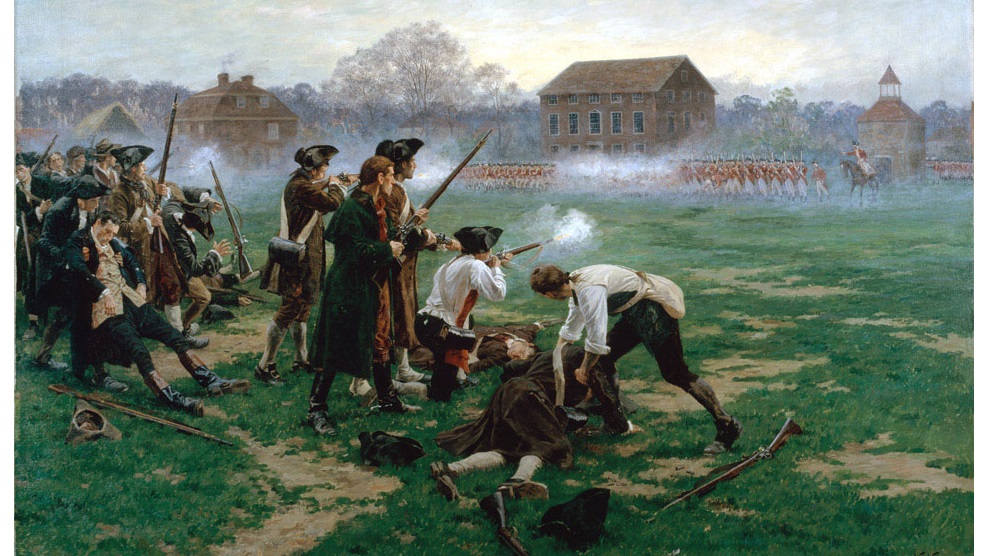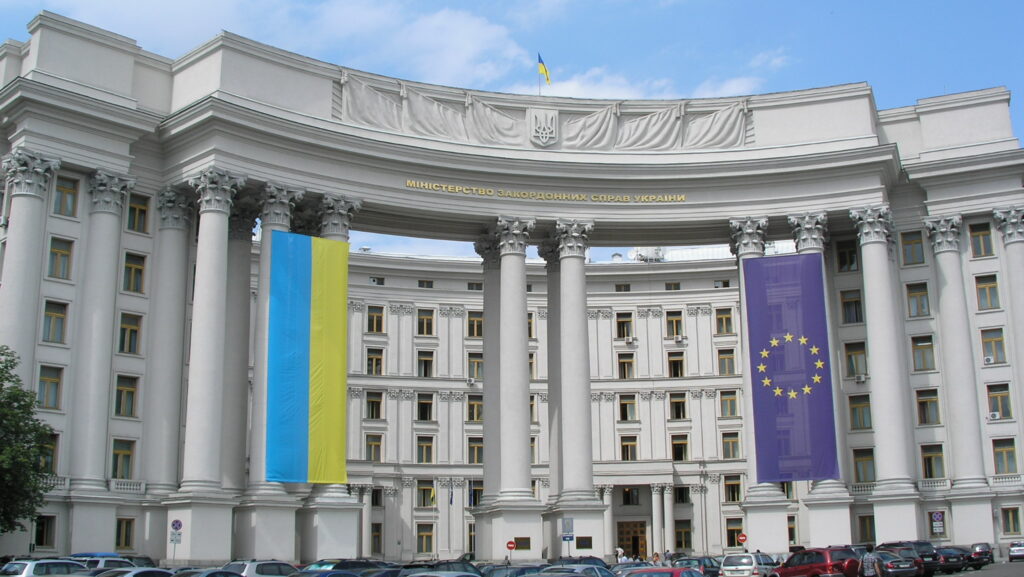In his interview with Tucker Carlson, Russian president Vladimir Putin took the first half hour to deliver a long history lesson about the relationship of Russia to Ukraine, going back over a thousand years. The American journalist visibly struggled to understand what was going on. This kind of thing would never happen in a conventional Western TV interview. But Putin would not be deterred.
In my Substack newsletter, I wrote that the interview was something of a dud, because ‘Putin blustered and rambled. I believe he failed significantly by spending the first half hour giving a history lesson.’ I added that Putin erred by ‘not understanding his communication purpose here.’
A Slavic friend living in America rebuked me in an e-mail, saying that Putin understood perfectly what he was doing. He went on to explain that most people in the world take history far more seriously than Americans do—and that this is especially true for Slavs.
It is difficult to imagine a people who take history less seriously than Americans.
This is part of our heritage. Our ancestors left the Old World to start fresh. The kind of people who could muster the courage to abandon everything they knew, forever, to go to a foreign land and try to build a life—well, those are the kind of people who are far more future-oriented than most. Even today, the kind of foreigners who emigrate to America tend to be those who are focused not on the past, but on the future—not on the was, or even the is, but on the what will be.
As someone who loves history, I have always thought of this as nothing but a problem. And then I read about the ancient vendetta culture of Albania, where entire villages of men are prisoners in their own house, because of blood feuds. Without a mechanism to discharge peacefully the debts of the past, daily existence becomes a living death.
To dwell too much in history is to become a slave to the past. To ignore history entirely is to become the slave of the future—or, to be precise, the slave of whoever controls the current narrative.
For better or for worse, history matters far more to most people in the world than it does to Americans. Failing to understand that gets us Americans into trouble. We typically assume everyone in the world is just like us—that the divisions between us are only superficial. Most Americans really did believe that the only reason Iraq under Saddam Hussein wasn’t a liberal democracy was because the dictator prevented it from emerging.
To dwell too much in history is to become a slave to the past. To ignore history entirely is to become the slave of the future.
Americans’ lack of interest in and understanding of that country’s history, its religious divisions, and its tribal animosities, allowed the Bush administration to manipulate the masses to support its war. In 2002, journalists and others who supported the coming war said that anybody who claimed that Iraqis weren’t prepared for democracy was a bigot. Absent any real knowledge of Iraqi history and culture, that slur stuck. And look where it got us.
Was Putin’s history lecture full of distortions and self-justification? No doubt. But then, every nation mythologizes its history to some extent. In the 1970s, when I was a child, we were taught in school that American history was the story of courageous Europeans who migrated to America seeking religious liberty. They moved across the wild continent, fighting savage Indians and spreading civilization. America fought a civil war to extend liberty to African slaves. The story of America is a drama of moral progress.
It was a myth. That’s not to say it wasn’t true, but rather that it was a story that was more or less true, and told as a way for the next generation to have a certain idea of who we Americans are. Today the story students get is much darker. It’s one of colonization, oppression, bigotry, and so forth. There is certainly truth in it, but from a conservative point of view, these truths are arranged in such a way as to tell a lie about America. Thus, we fight a cultural civil war.
As an American living abroad, it is frustrating to see the difference between the world as it is, and the world as Americans think it is. True, nobody can know everything at once. Total objectivity is impossible. Yet comparing life in Hungary as I see it to the way Hungary is portrayed routinely in the US media, and in American academic circles, is a master class in American ignorance.
This week, a prominent conservative American churchman, George Sumner, the Episcopal bishop of Dallas, published an essay criticizing various forms of Christian political engagement. He wrote:
‘Meanwhile, on the other end of the spectrum, so much of libertarianism may be traced back to the Nietzschian perspectives of Ayn Rand. The appeal to power has come to be more overt. The tale of Rod Dreher’s movement from endorsing [philosopher Alasdair] MacIntyre’s vision of a new Benedict to praise for the authoritarianism of Viktor Orban is cautionary indeed.’
I would bet money that what the good bishop knows about Viktor Orbán and political life in Hungary could fit on the back of a postcard, and still leave room for an account of a day at the beach. Discovering personally how much the knowledge even American conservatives have of Hungary comes through academia, journalism, and neoconservative think tanks in Washington has been disillusioning.
It’s not that I expect Americans, or even all conservative Americans, to become Fidesz followers. It’s that they know so little about the history of Hungary, or what it faces today. Even the stalwart anti-Orbán academic Péter Krekó once said, with me next to him onstage in Esztergom, that he wishes Westerners would quit calling Hungary ‘fascist’. This is lazy, and untrue. Were Bishop Sumner here, I would ask him what makes him think of Viktor Orbán as ‘authoritarian’—aside from the fact that he read it in a magazine.
It’s a bit simplistic to put it this way, but I wish Bishop Sumner, who is a conservative, would understand that in Hungary,
you have the ‘authoritarianism’ of Viktor Orbán, or you have the European Union opening the borders and queering children in schools.
There is no other alternative. This is why a lot of Americans plan to vote for Donald Trump this fall, though they aren’t fond of him. The failure of respectable conservatives to conserve and protect the borders, the family, or anything else is why voters turn to more vigorous alternatives.
The bishop refers to my book The Benedict Option, which derives its title from philosopher MacIntyre’s famous scenario in which he characterized our time as like the end of the Roman Empire in the West, and suggested that those who want to preserve traditions should emulate the early Benedictine monks. Sumner seems to think I once advocated political quietism, and have now degenerated into an authoritarian.
Well, for one, my book does not advocate withdrawal from politics; it does say, however, that people who think politics will save the church and the culture are making a mistake. Our prime focus has to be on rebuilding the churches.
Second, it is true that being in Hungary has opened my eyes to what politics can accomplish in terms of creating a landscape in which churches, families, and other culture-making institutions can flourish. Two things that set Orbán’s Hungary apart from other EU countries is the willingness of the government to defend the borders and limit migration, and the eagerness of the government to withstand the hatred of other EU nations to protect children from the kind of LGBT propaganda that is common in classrooms and in the media of other countries.
These were not laws decreed by a dictator. These were laws voted on by a democratically elected legislature, on behalf of a people who believe themselves to be sovereign. Looking at America from the vantage point of Budapest, I see a people who desperately want the border closed, and have for a long time, but whose politicians do not act in the country’s interest. And I see a president who uses his authority to push transgenderism onto the entire nation, whether it wants it or not.
‘Authoritarianism’ is in the eye of the beholder. Respectable Americans furrow their brows at the undeniable authoritarianism of Nayib Bukele, who was just returned to the El Salvador presidency with over 80 per cent of the vote. But where were they when that poor country was overrun by drug gangs, and decent people were afraid to leave their houses? Democracy is a means—usually the best one, but not always—to arrive at a good society. It is not the destination.
It is not necessary for Americans and their leaders to adopt the geopolitical and historical views of Vladimir Putin, Viktor Orbán, Nayib Bukele, or of any international leader. But if Americans want to avoid stumbling into messes like Iraq and Afghanistan, and being exploited by charismatic foreign figures taking advantage of Yankee ignorance and sentimentality, they would do well to look beyond their borders with a curious eye.
Allowing a diversity of opinion to inform one’s judgment really can be a source of strength. And, to paraphrase Cicero, taking history seriously is necessary if you wish to be a grown-up on the world stage, not a child, stomping around looking for somewhere to bomb, and somewhere else to bully.








